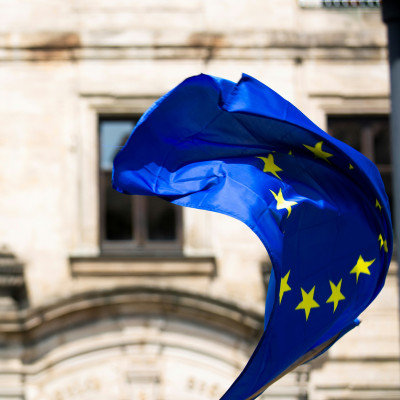Talking to our public affairs adviser about the new EU law on chain responsibility: the CSDDD
Last updated: Wednesday 27 March 2024

After a four-and-a-half-year period, the Corporate Sustainability Due Diligence Directive (CSDDD), also known as the European chain-of-care law that holds large companies accountable for pollution and exploitation in their production chains, has been passed. After an earlier blockade by some countries, the law is passing in a watered-down form. What does the law entail? And most importantly, what does it mean for entrepreneurs? We ask our public affairs adviser Siri de Vrijer.
Day Siri. Catch us up. What does the CSDDD even entail?
This law sets minimum standards for international corporate social responsibility. It requires companies to know what happens further down their supply chain. It also requires companies to prevent, address and/or remedy risks of, for instance, child labour or environmental pollution. The law can be seen as a follow-up to the Corporate Sustainability Reporting Directive (CSRD), which a large part of the business community already has to deal with now. That law requires companies to report on their supply chain. The CSDDD also asks them to actually take action to reduce negative impacts on people and the environment.
This law had quite a few problems. Why was the bill not passed at first?
There was already an agreement between the European Parliament and the Council (the assembly of EU member states). Then you would think: that law is coming. The votes in which a proposal is actually adopted are normally a mere formality. This time, however, things went differently: in the Council meeting, Germany, France and Italy abstained. The first two countries wanted the law to be more in line with their national CSR laws. By abstaining, they lacked the qualified majority needed to adopt a proposal. After further negotiations and weakening of the law, the necessary majority was found.
Now the law is through after all. Which companies have to comply with this law?
The law will only apply to companies with more than 1,000 employees and €450 million in turnover. So that is not a very large part of the Dutch business community - about 450 companies. Yet a large part of the Dutch business community will definitely be affected. If only because those large companies need information from their suppliers to map their chain and address risks. To improve working conditions and prevent or remedy environmental problems, every part of the chain bears some responsibility.
A law so that companies take responsibility for what they do elsewhere in the world. Good news right?
It is indeed good that the law has been passed. At least now entrepreneurs know where they stand. The law also ensures a more level playing field for all sustainable companies in our network that are already taking responsibility for their chain out of their own motivation. We therefore call on the Dutch government to implement the law quickly and to focus policy on stimulating knowledge development and chain cooperation among the entire business community. Because chain responsibility does not stop with companies with 999 employees or less. SMEs in particular need support to meet the demands of large companies that will soon have to comply with the CSDD.
What is CSR Netherlands doing?
Together with the companies in our network, we continue to work on transparent chains. Among others, through the Community of Practice: getting started with CSRD I and our partner meet-up dedicated to transparent chains. From the CSRD report, in which companies map out their chain, it is a logical step to action: preventing or improving the problems you encounter there. Think poor working conditions or negative environmental impacts in your chain. Many companies in our network have been working on this for a long time. We will work with them and with companies that have yet to take the first step.
Want to know more about the CSDDD?
Want to know how the CSDDD affects your business, who checks whether you comply and who exactly the CSDDD will apply to? We made an article with all about this new legislation, what it means for businesses and how best to prepare.
Maybe you'll find this interesting

These parties together create breakthrough in regenerative agriculture
For the first time, parties throughout the food chain have reached structural agreements on sourcing from a regenerative, natural farmer: 15 products from farmer Cornelis Mosselman are in the range at catering wholesalers Bidfood and Van Gelder Netherlands

This is why Future Up is hosting an agriculture debate
Marije Perdon is manager of communications & public affairs at Future Up. We speak to her about the agriculture debate that Future Up organised 2 October 2025 in collaboration with the TAPP Coalition and the Young Climate Movement.
